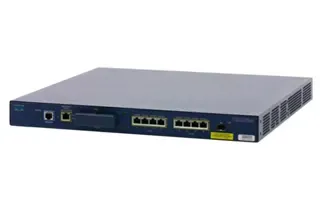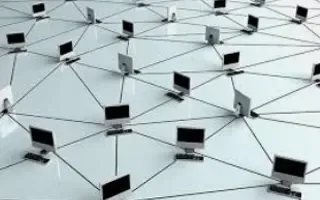Securing Your Home Network
 In today's world, securing your home network is more important than ever. With the increasing number of cyberattacks, data breaches, and online frauds, protecting your home network from potential threats is crucial. A home network is a combination of devices such as routers, modems, computers, smartphones, and other smart devices that are connected to the internet. This article will discuss the various methods to secure your home network, including antivirus software, Windows file sharing, personal firewall, malware scanners, secure Wi-Fi, and other recommended methods.
In today's world, securing your home network is more important than ever. With the increasing number of cyberattacks, data breaches, and online frauds, protecting your home network from potential threats is crucial. A home network is a combination of devices such as routers, modems, computers, smartphones, and other smart devices that are connected to the internet. This article will discuss the various methods to secure your home network, including antivirus software, Windows file sharing, personal firewall, malware scanners, secure Wi-Fi, and other recommended methods.
Antivirus Software
Antivirus software is a crucial component in securing your home network from potential cyber threats. Antivirus software is designed to detect and remove malicious software, viruses, and other malware that can harm your computer and other devices connected to the network. It works by scanning files and programs on your computer and identifying any malicious code or suspicious activity.
Antivirus software plays an important role in protecting your home network by preventing malware from infecting your devices and spreading to other devices on the network. It can also block potentially harmful websites and downloads, and alert you if you are about to access a dangerous website or download a harmful file.
In addition to detecting and removing malware, antivirus software can also provide real-time protection against new and emerging threats. Many antivirus software options offer automatic updates to ensure that you are protected against the latest threats.
However, it is important to choose a reputable antivirus software and keep it updated regularly to ensure the best protection. Antivirus software can only protect you against known threats, so it is important to keep it up-to-date to ensure that you are protected against new and emerging threats.
Windows File Sharing
Windows file sharing can play an important role in securing your home network by allowing you to share files and folders between multiple devices connected to the network. However, it is essential to ensure that file sharing is enabled only for authorized devices and users to prevent unauthorized access to your network.
Setting up a password-protected user account and limiting the access to shared files and folders can help prevent unauthorized access to your network. It is also recommended to use encryption to secure your files and prevent them from being intercepted by unauthorized users.
Another way to secure your file sharing is by enabling network discovery and file sharing only on private networks. This can be done in the advanced sharing settings of your Windows computer.
In addition to securing your file sharing, it is important to also keep your devices and software up-to-date, use strong passwords, and enable two-factor authentication whenever possible. By taking these steps, you can further enhance the security of your home network and reduce the risk of cyberattacks and online fraud.
Windows file sharing can be a useful tool in sharing files and folders between devices on your home network. However, it is important to ensure that file sharing is enabled only for authorized devices and users to prevent unauthorized access to your network. By taking additional steps to secure your file sharing, keeping your devices and software up-to-date, and using strong passwords, you can ensure the safety and security of your home network.
Personal Software Firewall
A personal software firewall is a key component in securing your home network. It is designed to monitor and control the traffic that enters and exits your computer or device, allowing you to block unauthorized access and prevent malware from communicating with the outside world.
A personal software firewall provides an additional layer of protection against cyberattacks by preventing unauthorized access to your computer or device. It works by analyzing the traffic that passes through it and blocking any incoming traffic that does not meet the specified rules and criteria.
Personal software firewalls are especially important for devices that are constantly connected to the internet, such as routers, smartphones, and computers. They can prevent attackers from accessing your network and stealing sensitive information or installing malware on your devices.
In addition to blocking unauthorized traffic, personal software firewalls can also alert you to suspicious activity and provide valuable information about the traffic that is passing through your network. This can help you identify potential threats and take steps to mitigate them.
However, it is important to note that personal software firewalls are not a substitute for strong passwords, regular software updates, and other security measures. They should be used in conjunction with other security measures to provide comprehensive protection for your home network.
Summarizing the above, a personal software firewall is a critical component in securing your home network. It provides an additional layer of protection against cyberattacks and prevents unauthorized access to your devices and sensitive information. By using a personal software firewall in conjunction with other security measures, you can ensure the safety and security of your home network.
Malware Scanners
Malware scanners are another important tool in securing your home network. Malware scanners are designed to detect and remove malware from your computer and other devices. They can also help prevent malware from spreading to other devices on your network. There are several malware scanner options available, including Malwarebytes and Spybot. It is important to keep your malware scanner updated and run regular scans to ensure maximum protection.
Secure Wi-Fi
Secure Wi-Fi is crucial in securing your home network. Wi-Fi is a convenient way to connect to the internet, but it can also be a potential security risk if not secured correctly. It is recommended to secure your Wi-Fi network with a strong password, WPA2 encryption, and a unique network name (SSID). Disabling WPS (Wi-Fi Protected Setup) and disabling guest access can also help increase your network's security.
In addition to the methods mentioned above, there are several other ways to secure your home network. These include keeping your devices and software up-to-date, disabling remote access to your router, using a VPN (Virtual Private Network) for added security when accessing the internet, and enabling two-factor authentication (2FA) for online accounts. Two-factor authentication adds an extra layer of security to your online accounts by requiring a code in addition to your password.
Summary
Securing your home network is essential in today's digital world. By following the methods mentioned above, you can ensure the safety and security of your devices and personal information. Antivirus software, secure Windows file sharing, personal firewall, malware scanners, secure Wi-Fi, and other recommended methods are all important components in securing your home network. Remember to keep your devices and software up-to-date, use strong passwords, and enable two-factor authentication whenever possible. By taking these steps, you can protect your home network and reduce the risk of cyberattacks and online fraud.
Your IP address:
3.147.55.1
Wi-Fi Key Generator
Follow Firewall.cx
Cisco Password Crack
Decrypt Cisco Type-7 Passwords on the fly!

















